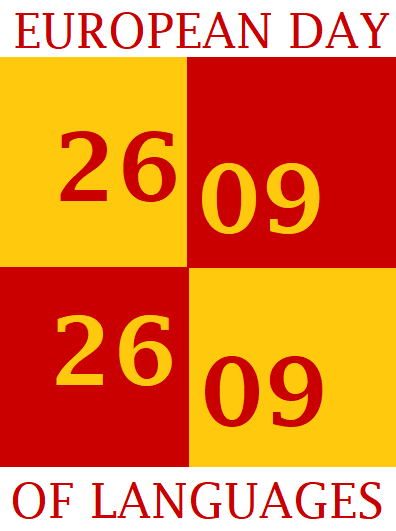
Since the Council of Europe in Strasbourg initiated the special day in 2001, the European Day of Languages has been celebrated every year on 26th September and throughout the week with a range of events organised across Europe.
From international conferences and TV programmes to language clubs, games, talks and home celebrations, everyone can get involved – teachers, students, universities, schools and individuals.
Decorate your house with flags, cook up some tasty food, open your phrase books and check out the special events taking place near you as we get ready for this multi-cultural and multi-lingual day!
The European Day of Languages
There are over 6,000 languages in the world and the European Day of Languages is the perfect opportunity to engage with one of them by exploring other cultures and dipping a toe into a new language.
Linguistic diversity is an important part of cultural learning and understanding, adding to Europe‘s heritage.
There has never been a better time to start learning a new language than during the month of the European Day of Languages, but even if you are not a multi-linguist, there are lots of ways you can get involved with the spirit of the day and explore other cultures.
Ways to indulge in multi-cultural activities include cooking foreign foods, reading a foreign novel, listening to songs in another language and watching a foreign film, to getting out your old French school books and practising a few phrases.
This is the perfect time to chat to those from other cultures and learn more about their country, their language and culture.
There are many online activities that can help with language learning and cultural explorations, such as language exchanges via Skype, in addition to face-to-face Meet Up groups related to language in your area.
Special events to mark the European Day of Languages
There are many events taking place to mark the European Day of Languages this year with precautions in place to protect all attendees. Current concerns over Coronavirus will affect the plans for any public celebration, so it is likely some events will be cancelled.
Events planned in London at the moment include a discussion of endangered languages and various other celebratinons of cultural heritage through language, looking at regional languages, including Welsh, Scottish, Gaelic, Cornish, Manx and Irish. There will also be events exploring sign languages, which will discuss the linguistic and socio-cultural aspects of signing.
Many other events are taking place throughout the week across the UK at colleges, schools, libraries and community centres in Leicester, Ipswich, Birmingham, Pevensey, Leeds, Edinburgh, Motherwell, Liverpool and many other towns and cities.
Across Europe, languages lovers can attend special events to mark the European Day of Languages in cities such as Paris, Valence, Bourges and Calais in France; Berlin, Strausberg, Darmstadt and Zittau in Germany; Madrid and Estepona in Spain; Rome, Florence and Salerno in Italy; Lisbon and Santo Tirso in Portugal, and many more cities and towns across Europe and beyond.
To find out where you can join in a celebration near you, check out the European Day of Languages website in their events database.
How schools can get involved
Many UK schools are celebrating the European Day of Languages by teaming up with schools abroad and setting up pen pal relationships.
These are a great way for children to practise another language with a native speaker. In addition to writing letters, many children engage with their pen pals over e-mail, live chat messaging systems and through audio-video link ups, such as Skype or Google Hangouts.
The European Day of Languages also presents an ideal opportunity for teachers to engage their class with a discussion of language as a part of culture. Classes can celebrate all the different cultures represented by the children and staff at the school.
This is an excellent way for children to learn about respect for other cultures and understanding of different backgrounds.
European Day of Languages in the EFL classroom
Learning another language and exploring other cultures also encourages us to look at our own culture more closely. This could help to open up interesting new areas for discussion about not only language but also food, sport, art, fashion, music, television, film, literature, politics and modern culture.
Of course, all this talk of different cultures and languages means that the spirit of the European Day of Languages acts as the perfect spring board to an exciting and wide-ranging EFL lesson.
Share your thoughts on the European Day of Languages
Do you think the European Day of Languages is a good idea for encouraging language learning and cultural explorations?
Will you go to a special event to mark the day?
Have you been inspired to start learning a new language?
Will you be taking about the the European Day of Languages in your language lessons this week?
Teachers, how will you use the day in your EFL class?
Let us know your ideas for the European Day of Languages in the comments box.
